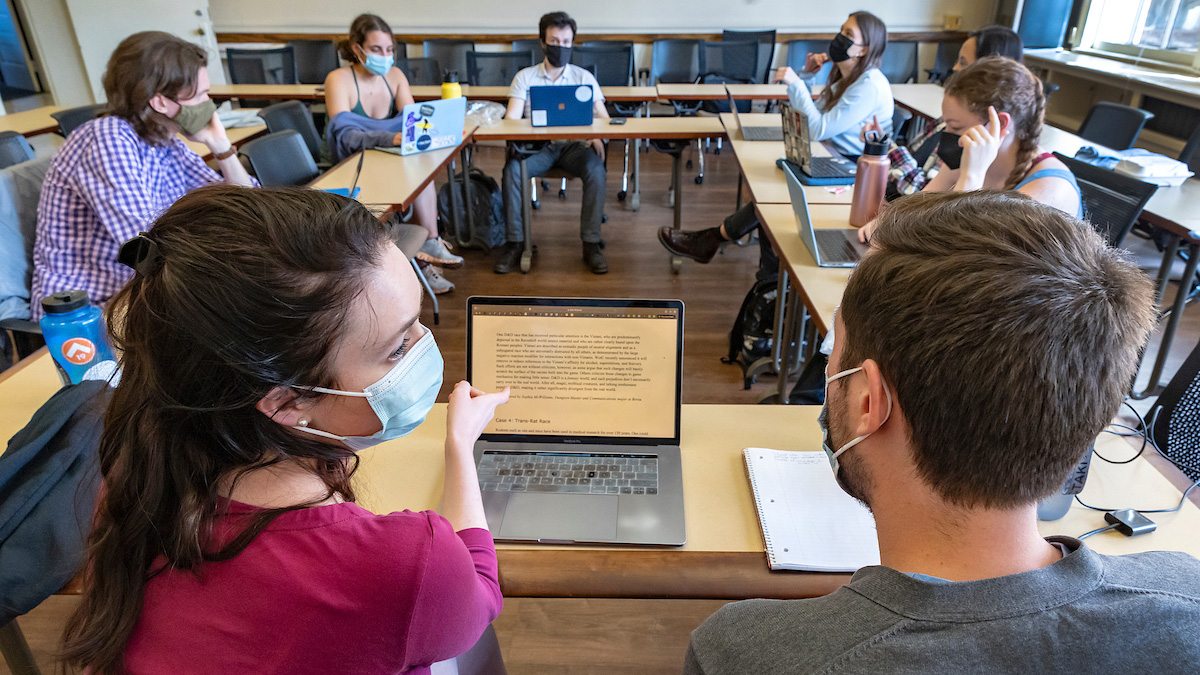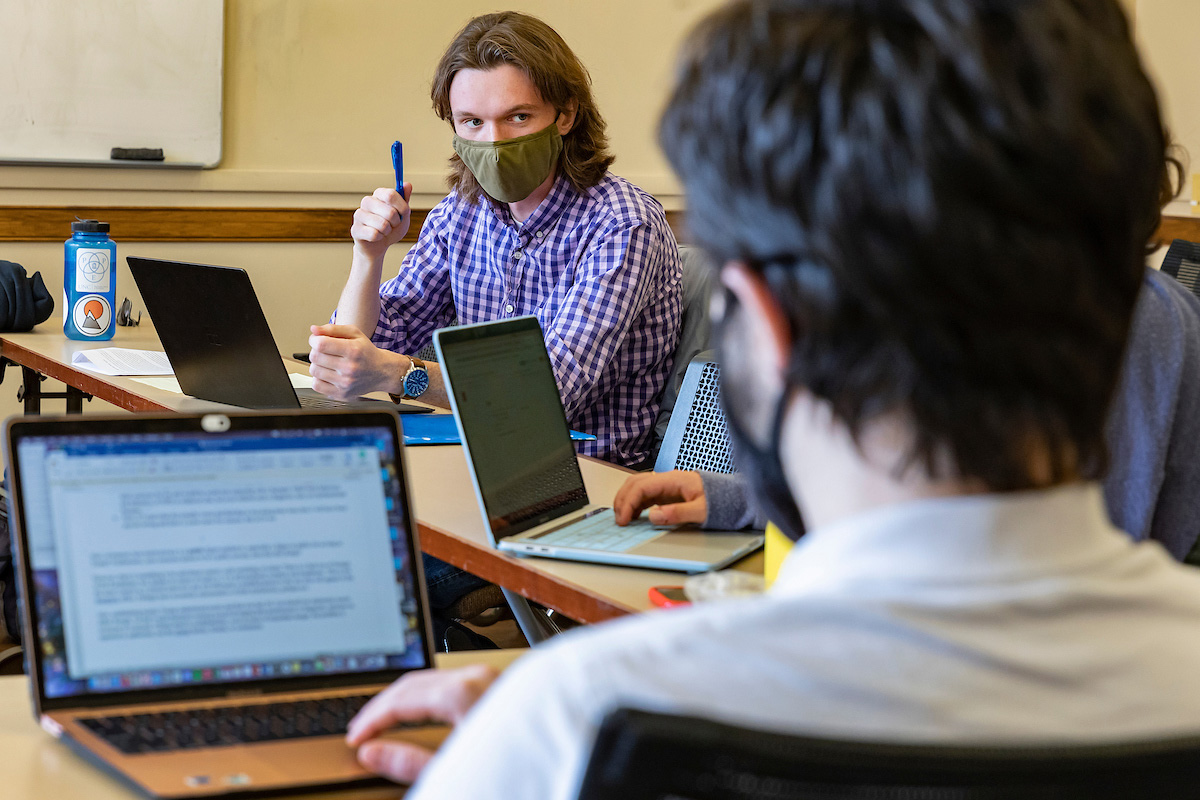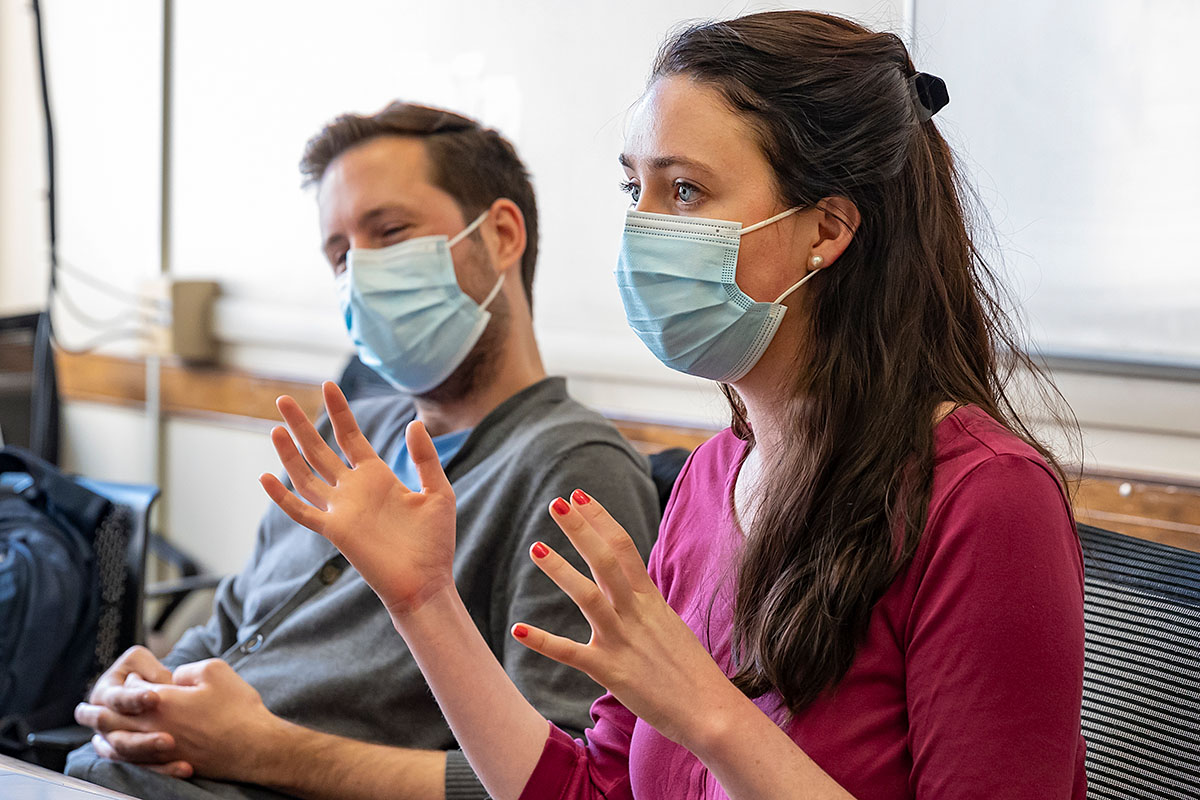Intercollegiate Ethics Bowl Team heads to national competition
Carolina's Intercollegiate Ethics Bowl Team will be facing off against 35 other schools for a national title this weekend. It is the team’s first time advancing to the national championship in over five years.

Squarely manicured and mowed green lawns are merely peripheral and inconsequential to most, but for Ann Goulian and Zach Leighton, the topic will be the subject of intense ethical, aesthetic and environmental debate at the upcoming National Intercollegiate Ethics Bowl.
The two students will be among the Tar Heels representing the University’s Intercollegiate Ethics Bowl Team at the competition this weekend. It is the team’s first time advancing to the national championship in over five years.
“I’m excited because this is the first community I found in college that’s a team environment. We’re all relying on each other in the pursuit ofa really explicitend,” Goulian says. “We’re all excited to get to work with each other again.”
The National Intercollegiate Ethics Bowl will be the culmination of months of training and preparation. Each fall, Carolina sends teams of students enrolled in the College of Arts & Science’s philosophy course “Ethics in Practice” to the Mid-Atlantic Regional Ethics Bowl. Goulian and Leighton, alongside Jade Monday, Lauren Haines and Lydia Nusbaum, placed second overall in that competition in November, qualifying to compete at nationals. Joined by fellow Tar Heels Abigail Barbu and Ash Santos, the Carolina team will now face off online against 35 other schools for a national title. The competition is hosted by the Association for Practical and Professional Ethics.
“We all really surprised ourselves at regionals because I don’t think any of us expected to do as well as we did. I think it just proved to us, ‘Wow, we really can do this, we work well together,'” Goulian says.
Delaney Thull, a doctoral student in philosophy and the instructor for the course, says the class functions as a close-knit seminar where students engage with ethics through an applied lens. This year, students considered topics ranging from the permissibility of vaccination incentives to the impacts of recreational rock climbers on indigenous religious sites.
“A lot of traditional philosophy classes can be teacher-driven or lecture-focused, which is important because ethical theory is hard material,” Thull says. “However, this course is student-driven. So, it was a good challenge for me to think of how to how to teach the same ethics material but in a way that was interactive, and that prepared the students to use it and apply it in real-time during the competition.”

Zach Leighton at a UNC Intercollegiate Ethics Bowl Team practice earlier this month. (Photo by Johnny Andrews/UNC-Chapel Hill)
Goulian, a philosophy major and history and business minor, says that many of these sensitive ethical topics would be difficult to discuss elsewhere. The ethics bowl team, she says, is an invaluable forum that has reshaped the way she has come to think about and understand complex ethical problems.
“Ethics is very distinct from politics. It almost forces you to think about why the other side thinks the way they do,” Goulian says. “Ethics Bowl has really forced me to defend the way I think and what I think about really deeply and much more complexly than I ever have before.”
Leighton, a junior studying geography, describes this simply as the practice of “deep, patient thought.”
Developing ethical views as a team while considering many different perspectives and potential objections is challenging, and Thull considers the students’ collaborative spirit to be the team’s greatest strength. She says team members are able to build off one another intentionally and respectfully.
“It’s one thing to make arguments as one person, where you give your own view and defend it,” she says. “It’s totally another thing to have to think as a unit with other people in order to advance one consistent line of argument during a whole conversation.”

Delaney Thull, a doctoral student in philosophy, leads a practice with the UNC Intercollegiate Ethics Bowl Team. (Photo by Johnny Andrews/UNC-Chapel Hill)
Thull said this ability to listen to and build on what their teammates say is part of what led the team to their victory over Yale at regionals when discussing a case concerning the federal funding of preschools. But it was also the result of a lot of practice hours and in-class hours spent together over nearly four months.
Because this team has proven to be such a valuable learning experience, the course will be replaced by a student organization offered through the Parr Center for Ethics this fall. Establishing the team as a student organization will allow students to return as team members for multiple years in a row, instead of requiring taking the philosophy course.
Goulian hopes that regardless of what happens in the upcoming competition, the Ethics Bowl will continue to serve its purpose on campus.
“[The Ethics Bowl] definitely trains thoughtful citizens of a democracy,” she says.




